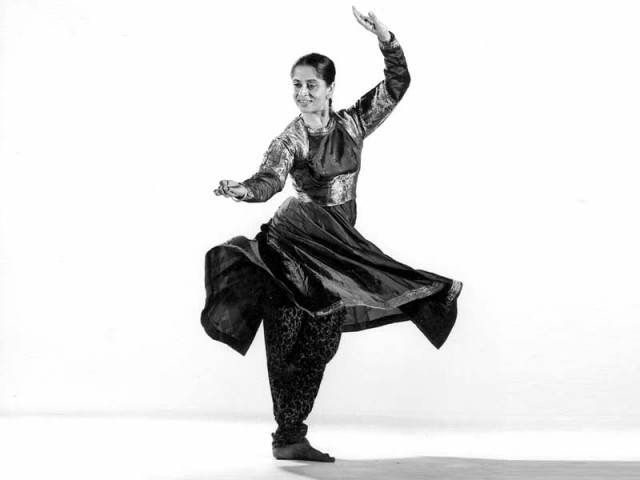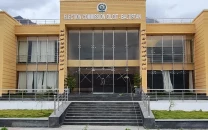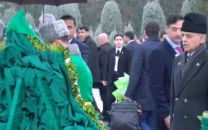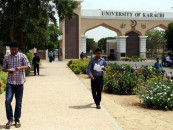Kathak: The joy of flight
Popular kathak dancer Nahid Siddiqui on what classical dance is, her years spent in exile and opening a dance school.

Kathak: The joy of flight
One of the finest kathak dancers and choreographers, Nahid Siddiqui is recognised internationally and has received numerous accolades including Pakistan’s highest artistic merit, Pride of Performance (1994), Time Out Award (1991), The Digital Award, British Cultural Award and International Dance Award, among others.
The Express Tribune sat down with her for a chat whereby the celebrated dancer shared details about her artistic background, promoting the art scene of Pakistan and planning to open a dance school in the country.
What is classical dance for you?
The word ‘classical’ needs to be broken down and defined properly. Everything in performing arts started from folk, for instance, those who trace their origins from Orissa, India, can dance to the Odissi tune. Kathak, on the other hand, is about grammar, vocabulary and style. Once you embrace it, it becomes a part of you. It’s like a circle and you keep evolving within it.
For me, classical dance is something divine as I enter into another world when I perform. I don’t just dance, I feel dance and treat it as an act of devotion.
How open is our society to classical dance as compared to the 1970s?
I believe until there is a criterion of incorporating classical dance in school curriculums, there will be no acceptance of dance in society. Unfortunately, after partition, dance — as part of subcontinental culture — was conveniently disinherited. My mentor once said, “Only fine arts can give fine brains.” It’s quite sad that the Pakistan National Council of the Arts (PNCA) is not promoting arts and culture.
How was it living in exile and coming to terms with the fact that you can’t perform in your country anymore?
I was banned and blacklisted in 1979 and was forced to fly to England but I carved a niche for myself there and in other European countries as well.
However, after returning to Pakistan in 1984, I performed every year from then onwards. Dancing is like breathing to me. No one can take that away. I remember, once famous poet Faiz Ahmed Faiz saw my performance and told me to be a reformer and play a part in changing the system. That advice has stayed with me and, hence, I carried on with it.
Given the current state of the country, do you think there can be a revival of dance in Pakistan?
How does one expect arts to flourish in a society plagued by poverty? However, I
believe that hope and struggle to revive it should never die.
Would having an academic curriculum on classical dance revive the dying art in Pakistan?
Yes, definitely. It’s done all over the world. When people learn and impart this knowledge, I think it will save classical dance from a gradual death. I plan on opening up a dance school in Pakistan, but currently I’m looking for supporters. I believe Karachi can be a turning point as it’s a cosmopolitan city and appreciates culture more.
Published in The Express Tribune, October 27th, 2011.



















COMMENTS
Comments are moderated and generally will be posted if they are on-topic and not abusive.
For more information, please see our Comments FAQ